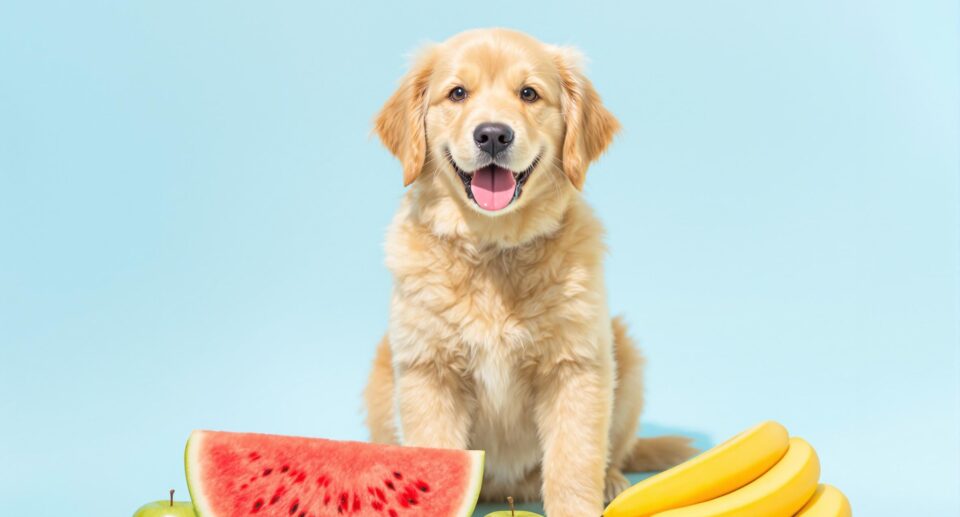Can Dogs Eat Watermelon?

Key takeaways
- Dogs can safely enjoy watermelon in moderation when seeds and rind are removed.
- Small, plain, bite-sized chunks or frozen pieces make for a fun, hydrating treat.
- Always watch portions to avoid stomach upset and ask your vet if unsure about new treats.
Watermelon is a summertime staple that’s hard to resist, especially when you want to share a sweet bite with your dog. This juicy fruit is more than just tasty. It’s packed with water and nutrients that can give your pup a refreshing boost. But like any human food, not every part of a watermelon is dog friendly, and serving it the wrong way can lead to an upset stomach.
If you’re wondering how to share watermelon safely with your pup, you’re in the right place. At PetHealthMD, we’re here to help you navigate the dos and don’ts so you can treat your dog with confidence and keep every snack time safe, simple, and stress free.
Is watermelon healthy for dogs?
Yes. Watermelon is naturally low in calories and has a high water content, making it a refreshing snack during warm weather. Along with hydration, watermelon provides a dose of helpful vitamins and minerals that can benefit your dog’s overall health.
Like any snack outside your dog’s regular food, watermelon should be given in moderation. Keeping portions small helps prevent any stomach upset and ensures your dog enjoys the fruit without overdoing it.
What to watch out for
Watermelon can be a fun snack for dogs, but there are a few parts of this fruit that aren’t meant for canine tummies. Paying attention to these details helps keep your pup safe during snack time. Keep these points in mind before you share a slice:
- Remove the seeds: Watermelon seeds can cause intestinal blockages, especially in smaller dogs.
- Skip the rind: The green rind is tough to chew and digest.
- Watch portion sizes: Too much watermelon at once can upset your dog’s stomach.
Being mindful of these tips means your dog can enjoy watermelon without any unwanted side effects.
How to give your dog watermelon
Once you know the safe parts of watermelon, serving it the right way makes it an even better treat. A little preparation goes a long way in avoiding messy accidents or tummy troubles.
- Cut it into bite sized cubes: Small chunks are easier to chew and reduce choking risks.
- Hold the rind while they nibble: Let your dog bite the pink flesh while you hold the rind.
- Freeze the cubes: Frozen pieces make a fun summer treat.
- Serve fresh and plain: No added sugar or seasonings.
- Clean up right after: Rinse bowls to avoid sticky residue.
For dogs who gain weight easily or have sensitive stomachs, even smaller portions may be needed. Always watch your dog’s reaction and consult your vet if you’re unsure.
More dog friendly fruits
Many fruits can be a safe, occasional treat for dogs. Always offer small amounts and remove seeds, pits, or tough skins.
Blueberries, bananas, pears, cantaloupes, strawberries, mango, pineapple, apples, raspberries, apricots, oranges, and cranberries can all be options when served properly. For more healthy treat ideas, explore the Dog Treats category on 1800PetMeds.
Fruits dogs should avoid
These fruits should be kept off your dog’s menu:
- Raisins and grapes
- Cherries
- Lemons and limes
- Grapefruit
- Persimmons
Keeping these out of reach helps prevent serious digestive issues or toxic reactions.
Frequently asked questions
Can dogs eat watermelon seeds or rind?
It’s safest to remove all seeds and skip the rind entirely.
Is frozen watermelon safe for dogs?
Yes, frozen pieces are a fun way to cool down your dog.
How often can I give my dog watermelon?
Keep it as an occasional treat once or twice a week.
What other fruits can dogs have?
Apples, blueberries, bananas, pears, and strawberries are common options when prepared safely.
Are there fruits dogs should never eat?
Yes. Grapes, raisins, cherries, lemons, limes, grapefruit, and persimmons should be avoided.
Should I use a special bowl for serving fruit treats?
A stainless steel dog bowl works great and is easy to clean. You can explore more feeding supplies in the Dog Supplies category.
Healthy snacking for happy dogs
Your dog can enjoy watermelon as a refreshing snack as long as it’s prepared with care. Taking time to cut out seeds, remove the rind, and offer bite sized pieces helps avoid hazards. Treat it as a once-in-a-while bonus.
At PetHealthMD, we love helping you make smart choices about treats and nutrition. If you’re ever unsure about adding new fruits to your dog’s diet, your veterinarian can offer the best guidance. For everyday essentials, check out the full Dog category on 1800PetMeds.





